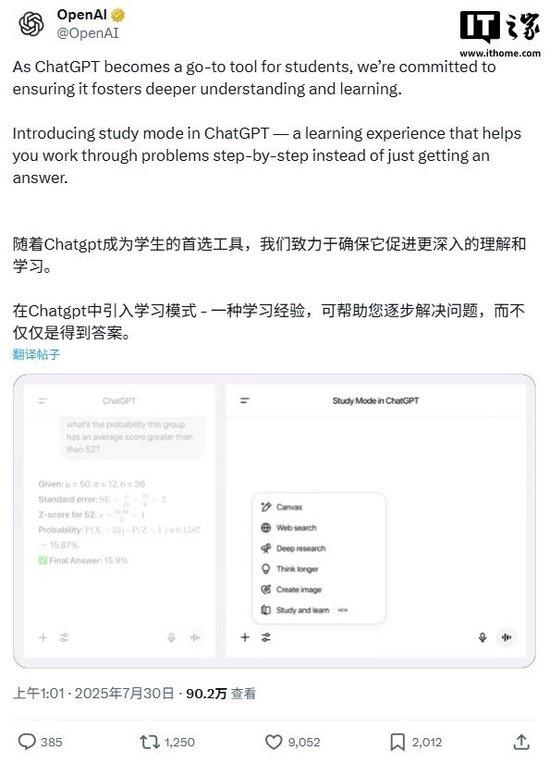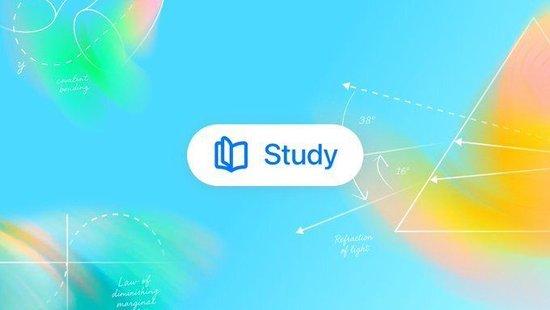

IT Home reported on July 30 that, in the early hours of today, OpenAI announced the launch of the Study mode for ChatGPT, aimed at helping students truly master knowledge points rather than merely completing assignments.
Starting from today, this feature is available to free, Plus, Pro, and Team users, while ChatGPT Edu users will have to wait a few more weeks.
According to official sources from IT Home, this mode is primarily targeted at the education sector. The system provides guided questions to student users, adjusting the response content based on their learning goals and skill levels, thereby helping them establish deeper understanding.
The Study mode for ChatGPT offers four methods: interactive prompts, scaffolded responses, personalized education, and knowledge check-ups, enabling a deep interpretation of each difficult problem’s solution process and flow.
In other words, it functions as an online tutor 24/7, providing personalized guidance and feedback based on the student’s learning progress and needs. It not only helps students understand complex concepts but also fosters critical thinking and self-learning abilities through progressive guidance.
Robbie Torney, Senior Director of Common Sense Media AI Project, stated, “Rather than completing assignments for them, the study mode encourages students to critically think about the learning process. This feature is a positive step towards effectively applying AI in the field of learning. Even in the era of AI, the most effective learning still occurs when students are passionate about the course content and actively participate.”
Interactive prompts: Guided by Socratic questioning, prompts, and self-reflection prompts, this approach facilitates understanding and promotes active learning instead of directly providing answers.
Supportive Structured Responses: Information is organized into easily understandable chapters, highlighting the key connections between themes. Appropriate background information keeps content engaging while reducing information overload from complex topics.
Personalized Support: The course content is personalized based on the user’s actual level, adjusting it through assessment of skills and memory demonstrated in previous chats, as well as improvements in file memorization, ensuring efficient and focused learning time.
Knowledge Check: Tests and open-ended questions combined with personalized feedback track learning progress, aiding in reinforcing knowledge and enhancing the ability to apply it in different contexts.
Flexibility: During conversations, you can easily switch between modes of learning, adapting your learning goals flexibly each time.
This is the first step in enhancing the learning experience for ChatGPT. Currently, the learning mode is supported by custom system commands. We chose this approach because it allows us to learn quickly from real student feedback and optimize the experience — even if this may result in some inconsistencies and errors in conversations. We plan to integrate this behavior directly into our core model after identifying the best solution through iteration and student feedback.
We are also exploring features to enhance the interactivity and practicality of learning models, including:
Clearer visualizations of complex or text-intensive concepts.
Cross-dialogue goal setting and progress tracking.
More personalized customization based on each student’s skill level and objectives.
The research prospects for how AI can be best applied in the field of education are still being gradually formed. OpenAI is advancing further research in the realm of learning and AI through its NextGenAI program, collaborating with several partners. Together with the SCALE program experts from Stanford University’s Learning Accelerator, they are researching and sharing insights on the impact of AI tools (including learning models) on learning outcomes in K-12 education, among other areas.